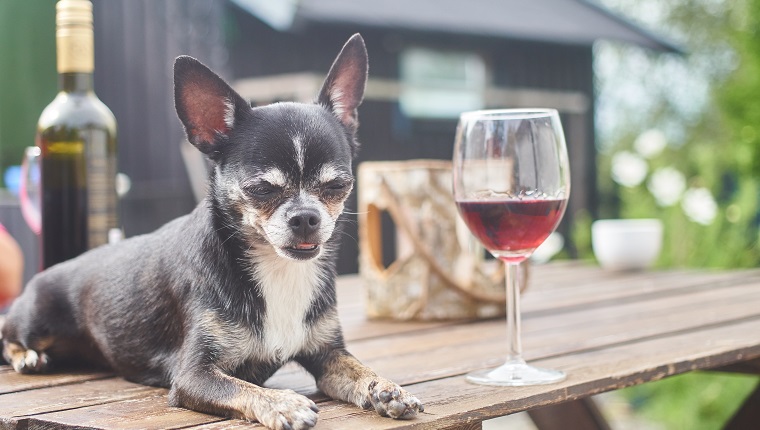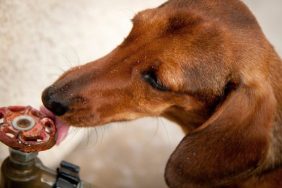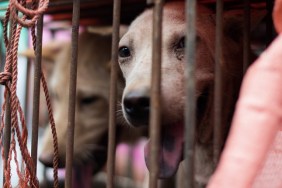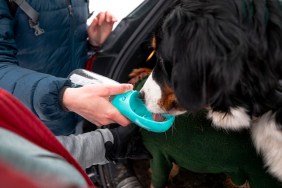How bad is alcohol for dogs? You might have had this thought if your dog tried to sneak a sip of your beer at a dog-friendly bar or your relaxing glass of wine at the end of a work day. If humans can drink alcohol, is it so bad if your dog has some?
The short answer is dogs absolutely cannot safely drink alcohol. The ASPCA lists it as one of the main substances that you should never be tempted to give to your canine.
Here’s what you need to know about alcohol and dogs.
Why Is Alcohol Bad For Dogs?
“Under no circumstances should your pet be given any alcohol,” says the ASPCA in an advisory listing about human foods that you should always avoid giving to your dog. Letting your dog drink any alcoholic beverages can lead to any number of adverse conditions.
Some of the most common symptoms include:
- Wobbling while trying to walk
- Loss of coordination
- Vomiting
- Experiencing tremors
- Diarrhea
- Breathing problems
If your dog develops a significant case of alcohol poisoning, they might enter into a coma or end up experiencing issues with their central nervous system. Unfortunately, the most severe cases can prove lethal.
What Should I Do If My Dog Drinks Alcohol?
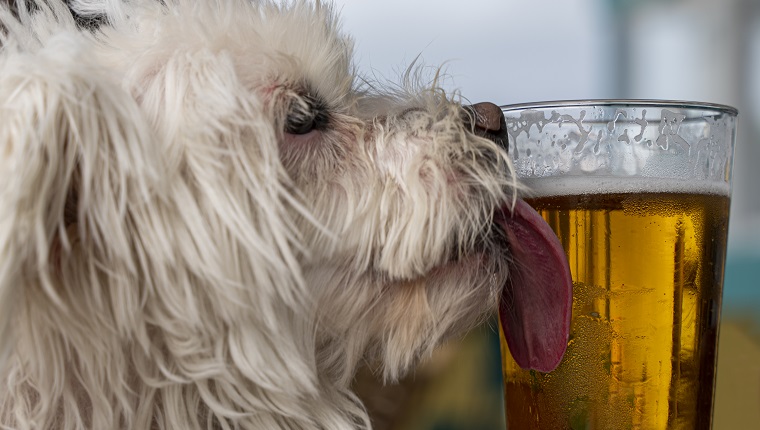
Alcohol poisoning can cause a dog to suffer from extreme negative health issues, but thankfully there are a few considerations that can help mitigate the danger.
Firstly, dogs in general don’t usually enjoy the taste of alcohol. So even if your dog sneaks in a quick sip of a beer, there’s a chance they will not return for more.
Secondly, it’s important to factor in both the size of your dog and the strength of any alcoholic beverages they manage to drink. A medium or large dog who gets away with a couple of sips of a beer will be less likely to experience negative health effects than a smaller canine who drinks some hard liquor.
In both cases, the first response to noticing your dog drinking any alcoholic beverage is to promptly remove the drink from them.
After you monitor your dog for any symptoms, you should call your veterinarian for further advice. If your regular veterinarian and an emergency vet are unavailable, you can also make use of the ASPCA’s emergency Animal Poison Control Center, which you can call on the number 888-426-4435.
In the event that you are advised to take your dog to a canine medical facility, there’s a good chance they will be placed on an intravenous drip to help hydrate them.
Has your dog ever tried to sneak a sip of alcohol? How do you make sure to keep all alcoholic drinks out of your pet’s reach? Let us know in the comments below!
